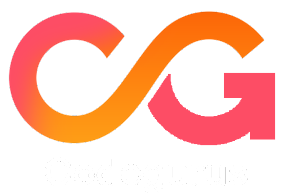Python Web Development: Creating Modern Web Solutions
Python is a famous programming language for web development. Big companies, such as Google and Netflix, utilize Python web development. When discussing the market, the demand for the Python language has been increasing for the past five years. Developers can also leverage pre-built components in Python to save time and money.
Types of Python for Web Development
Web development involves creating a web application that users can access via the internet using a web browser.
A web application is typically divided into two parts:
- Frontend
- Backend
1. Frontend- The frontend is the portion of a web application that deals with what users can see and interact with.
2. Backend- The backend manages the server side of the Python web development.
Also Read: Essential Skills of a Front End Web Developer: A Comprehensive Guide
Why is Python web development is the right choice for web development?
- Python code is easy to read and maintainable.
- There is less chance of error with Python code because of clean and easily readable syntax.
- Python has multiple libraries, frameworks, and resources available for web development.
- It has cross-platform compatibility, which means you can deploy the web application on various operating systems without making significant changes.
- It is a high-level language, so developers focus on complex issues rather than dealing with low-level details.
- The most powerful Python web frameworks are Django and Flask.
- Web applications of Python can be easily scaled to manage raised traffic and demand.
- Python has in-built security features.
- It supports various databases like PostgreSQL, MySQL, MongoDB, etc.
- Its popularity in machine learning makes it an outstanding choice for web applications that need AI and data analysis features, as you can easily combine machine learning models and libraries.
Leading Companies Unleashing the Power of Python web development
Many top companies are using Python in their technology stacks.
- Instagram- It is a social media platform that relies on Python and has more than 500 million users on its application.
- Spotify-It is a popular music streaming application in the market.
- Disqus-this commenting plugin processes around 50 million comments every month, and it is available in 191 countries.
Exploring the Top Python Web Development Frameworks
The primary reason for Python web development is the availability of frameworks that simplify the development process. You can choose the framework as per your requirements.
Top Python Frameworks are-
- Django
- Pyramid
- TurboGears
- Flask
1. Django:-
Django is a Python-free and open-source web framework that promotes rapid development and clean design. Built by professionals, it takes care of much of the hassle of web development, so you can concentrate on writing your application without needing to reinvent it. Django works excellently with Oracle SQL, PostgreSQL, MySQL, and other popular databases.
- Helps you specify URL patterns for your application.
- Integrated authentication system.
- Easy and effective URL scheme.
Also Read: How to Choose the Best Websites for Real Estate Agents?
2. Pyramid:-
Pyramid is a famous Python web development framework, and it is versatile enough to be used with different frameworks and plugins. It is the best framework when you have to execute various solutions within one task.
- Comprehensive template design and asset information
- Testing, support, and extensive data documentation
- Flexible authorization and authentication
- Capability to perform well with both small and large applications
3. TurboGears:-
TurboGears is best for fast and efficient web application development. You can create both simple and complex applications using either minimal or full-stack modes with this framework. It contains several components, including Repoze, WebOb, and Genshi, and follows the MVC architecture.
- Multi-database support.
- Available command-line utilities.
- All characteristics are implemented as function decorators.
4. Flask:-
This framework’s perspective is to give a simple and manageable solution that can be easily customized. Flask defines itself as a microframework and is most commonly applied to small solutions whose primary priority is lean functionality. The framework is also used for creating prototypes.
- Built-in development server with debugger.
- RESTful request dispatching.
- Integrated support for unit testing.
- Jinja2 templating.
Conclusion-
In this blog, you get complete information about Python technology. Python programming language is best for web development and offers various frameworks to developers. Frameworks make your work more fast and efficient. Visit our CodeGurus website for complete information, and also contact us for Python web development services.
FAQ-
What is Python?
Python is a programming language used for web development services.
Why is Python popular?
Python is popular because it makes it easy to create complex websites. It is a high-level language, so developers can write code in a readable syntax.
Can Python be used for mobile app development?
Python code allows you to use it in web development, mobile applications, desktop programs, system administration, Data Science, embedded systems, and so on.
Why is Python web development is better than Java?
Python is more versatile, easier to read, and has a simpler syntax.
Why Python for machine learning?
Because it provides access to great libraries and frameworks for AI and machine learning (ML), offers flexibility, is platform-independent, and has a wide community.
Essential Skills of a Front End Web Developer: A Comprehensive Guide
The role of front end web developer encompasses a wide range of responsibilities, from designing user interfaces to building complex interactive features. While the specific skills required may vary depending on the company or project, there are several essential abilities that all front end developers need in order to succeed. Whether you’re aspiring to become a front-end web developer or want to refine your existing skills, this comprehensive guide will outline the essential skills you need to master.
1. HTML (Hypertext Markup Language)
HTML is the foundation of web development. It is used to structure the content of web pages. A front end web developer must have a deep understanding of HTML to create well-organized, semantic, and accessible web pages. Key concepts to master include HTML5 elements, forms, semantic tags, and how to properly structure content for SEO.
2. CSS (Cascading Style Sheets)
CSS is essential for styling web pages. Proficiency in CSS is necessary to control the layout, design, and visual aspects of a website. Topics to focus on include CSS selectors, box models, flexbox, grid layout, and responsive design principles. Additionally, knowledge of CSS preprocessors like SASS or LESS can be advantageous.
3. JavaScript
JavaScript is the programming language of the web and a core skill for front end developers. Understanding JavaScript is crucial for adding interactivity, dynamic content, and client-side functionality to websites. Essential JavaScript concepts include variables, functions, loops, DOM manipulation, and asynchronous programming with promises and async/await.
4. Version Control/Git
Version control systems, particularly Git, are fundamental for collaborative development. Learning Git enables front end web developers to track changes, collaborate with others, and safely manage codebase versions. Familiarity with Git commands and workflows like branching and merging is essential.
5. Responsive Design
With the proliferation of various devices and screen sizes, responsive web design is a must. Front end developers should know how to create layouts that adapt gracefully to different screen sizes using media queries, fluid grids, and flexible images.
6. Front-End Frameworks
Front-end frameworks like React, Angular, or Vue.js are widely used to build modern web applications. Familiarity with at least one of these frameworks is highly valuable. These frameworks allow developers to build interactive and efficient user interfaces.
7. Package Managers
Understanding package managers like npm (Node Package Manager) is essential for managing dependencies and packages efficiently. This skill helps streamline development workflows and maintain code quality.
8. Build Tools
Build tools like Webpack, Grunt, or Gulp to automate repetitive tasks such as code compilation, minification, and bundling. Knowing how to configure and use these tools can significantly improve the development process.
9. Browser Developer Tools
Browser developer tools are essential for debugging and optimizing web applications. Front end web developer should be proficient in using these tools to diagnose and fix issues, test performance, and inspect elements.
10. AJAX and APIs
Front-end developers often need to retrieve data from servers or third-party APIs asynchronously. Knowledge of AJAX (Asynchronous JavaScript and XML) and how to work with APIs is crucial for creating dynamic web applications.
11. Web Performance Optimization
Optimizing the performance of web pages is vital for delivering a great user experience. Front end web developers should understand techniques such as lazy loading, code splitting, and minimizing HTTP requests to improve page load times.
12. Accessibility
Creating accessible websites ensures that all users, including those with disabilities, can access and use your web content. Understanding ARIA roles, semantic HTML, and best practices for accessibility is a must.
13. Testing and Debugging
Front end developers should be proficient in testing their code and debugging issues. This includes unit testing, end-to-end testing, and using debugging tools.
14. Cross-Browser Compatibility
Ensuring that a website works consistently across different browsers is a significant challenge. Front end web developers need to test and make necessary adjustments to address browser-specific issues.
15. Soft Skills
Effective communication, collaboration, and problem-solving are essential soft skills for front-end developers. Working closely with designers, back-end developers, and project managers requires strong interpersonal skills.
Conclusion
Becoming a skilled front end web developer involves a continuous learning process and staying updated with the latest technologies and trends. This comprehensive guide has highlighted the essential skills you need to master to excel in this dynamic field. Whether you are a beginner or an experienced developer, dedicating time to developing these skills will help you build amazing and user-friendly web experiences. As you progress in your front-end development journey, remember that practice, experimentation, and ongoing education are key to your success in this ever-evolving domain. Contact us at Codegurus to know more.
FAQ’s
1. What is a front-end web developer, and what do they do?
A front-end web developer is a professional responsible for creating the user interface and user experience of a website. They work on the visible elements of a website that users interact with, such as layouts, navigation, and interactive features.
2. What are the core programming languages and technologies front-end developers should know?
Front-end developers should have a strong grasp of HTML, CSS, and JavaScript, which are the fundamental building blocks of web development. They should also be familiar with frameworks and libraries like React, Angular, or Vue.js.
3. How can I improve my front-end development skills?
To enhance your front-end development skills, consider taking online courses or tutorials, participating in coding challenges, and building your own projects. Joining developer communities, attending workshops, and seeking mentorship can also be beneficial.



